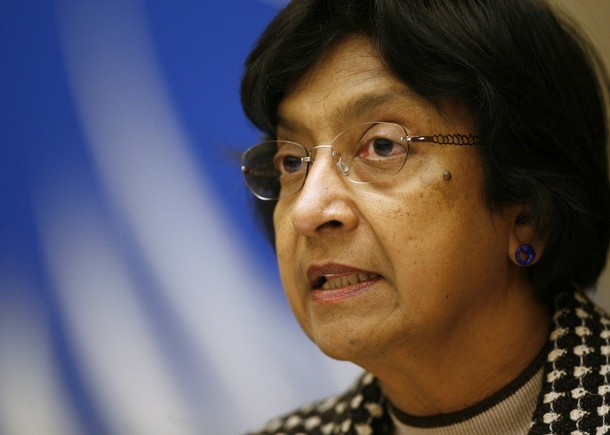
The United Nations human rights chief called on Sri Lanka to allow an international probe into the government's final offensive against Tamil Tiger rebels last year.
Navi Pillay, the UN High Commissioner for Human Rights, acknowledged that the Sri Lanka government had created a post-war reconciliation commission to look into alleged human rights violations, and provide justice to victims.
"However, based on previous experience and new information, I remain convinced that such objectives would be better served by establishing an independent international accountability mechanism that would enjoy public confidence, both in Sri Lanka and elsewhere," she told the UN Human Rights Council.
Sri Lanka's President Mahinda Rajapakse last Thursday reiterated that he would not tolerate any outside review of the military offensive.
Sri Lankan Attorney-General Mohan Peiris told the council on Monday that Pillay was prejudging the outcome of the domestic commission's work and warned that an international probe would undermine the country's sovereignty.
"We are of the view that the High Commissioner's observations on the Commission on Lessons Learnt and Reconciliation, which has just been established, regrettably seeks to prejudge its outcome even before the mechanism has begun its work," he said.
Peiris defended the domestic probe, saying that it was not unusual for countries emerging from armed conflicts to turn first to internal probes, partly because they were closer to the main issues.
"It is in this context that the government of Sri Lanka has consistently upheld and established a domestic mechanism for transitional justice," he said.
The state-run Daily News newspaper reported on May 5 on Colombo's plans to set up a reconciliation commission to foster ethnic unity as the island recovers from nearly four decades of conflict, but gave few details.
According to a document circulated by the Sri Lanka delegation at the Human Rights Council on Monday, the commission was set up on May 15, with eight people "selected for their eminence and independence."
They are required to examine the circumstances around the failure of a 2002 ceasefire agreement as well as lessons learnt from the conflict and how victims can be helped.
The commission should report back within six months.
Pillay assessed that some progress has been made since the end of the conflict in the return and resettlement of displaced people.
"Concrete initiatives must now follow to provide justice and redress to victims and generally to promote accountability and longer-term reconciliation," she added.
Government troops defeated the Tamil Tiger rebels in May last year after killing the guerilla leaders who were fighting for an ethnic Tamil homeland.
The UN estimates that up to 100,000 people died in Sri Lanka's Tamil separatist conflict after the Tiger rebels first emerged in 1972.
The Sinhalese are the majority in Sri Lanka, with the Tamils representing the minority.
© AFP
![Reblog this post [with Zemanta]](http://img.zemanta.com/reblog_e.png?x-id=275627c5-3d8b-45a2-a972-cb750fb92bb7)

















No comments:
Post a Comment